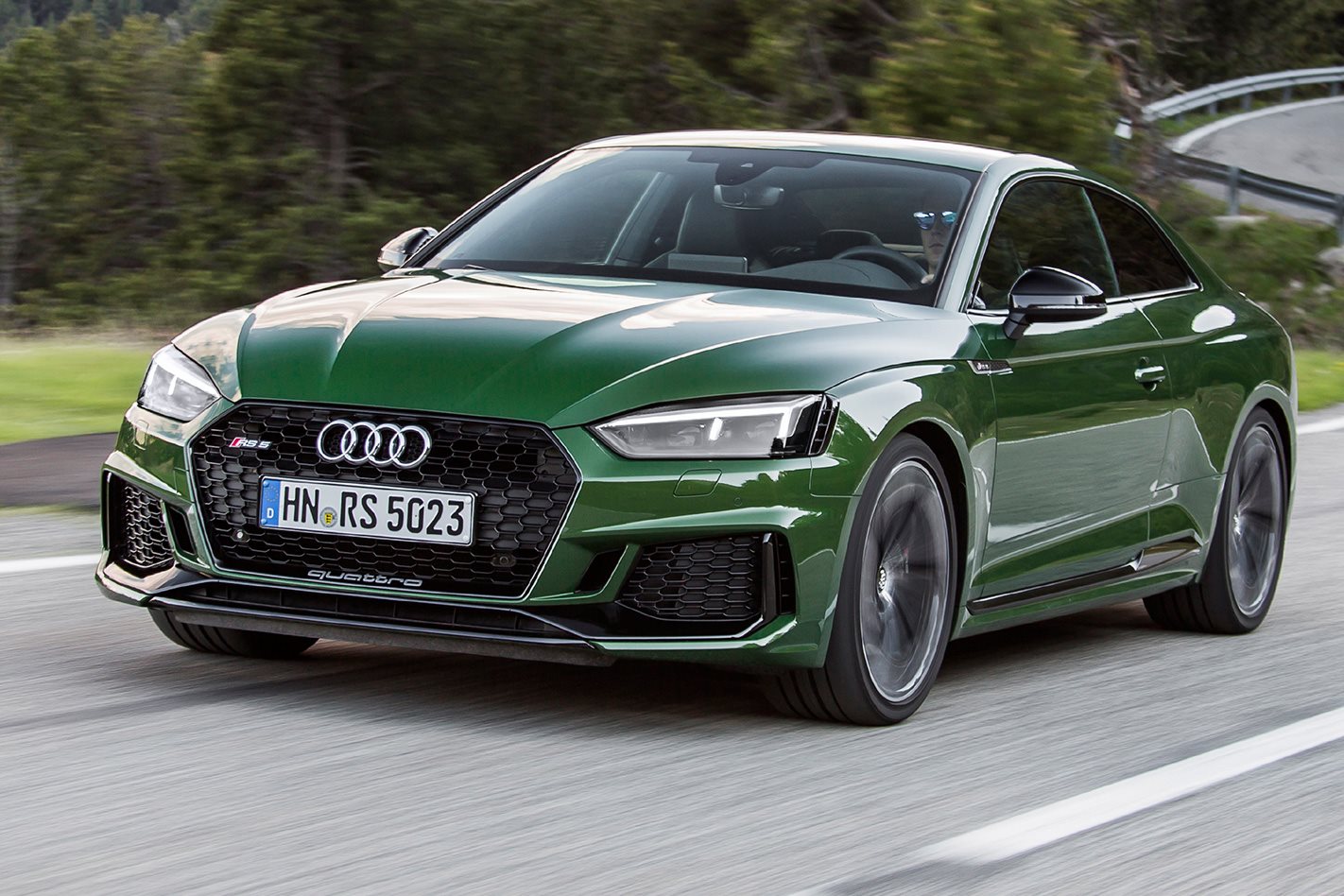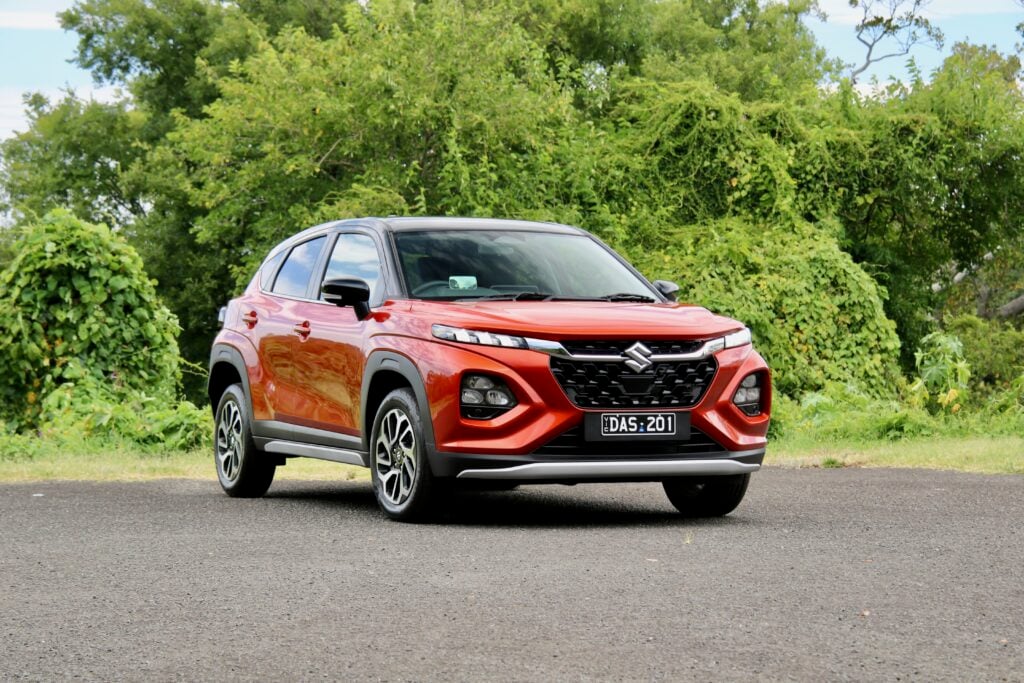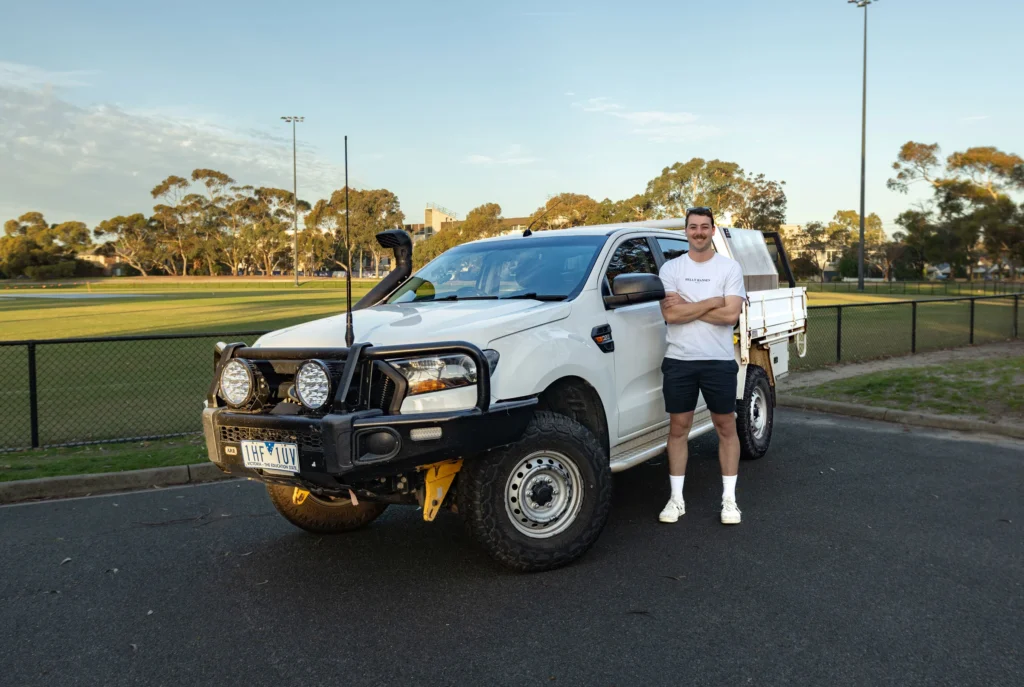Before we talk about the new RS5, we’d be remiss not to sound a rhetoric last post at the departure of the old model.
Not because it was particularly good overall, but rather because it was the final refuge of Ingolstadt’s 4.2-litre V8; arguably the naturally aspirated multi-cylinder engine of the last decade. Its replacement is the all-new 2.9-litre twin-turbocharged V6 co-developed with Porsche.
Naturally, on paper, it is superior in almost every sense. However, memories of the departed V8 provide not only a signpost to the previous RS5’s most likeable fixture, but also quattro GmbH – the entity which has now morphed into Audi Sport.
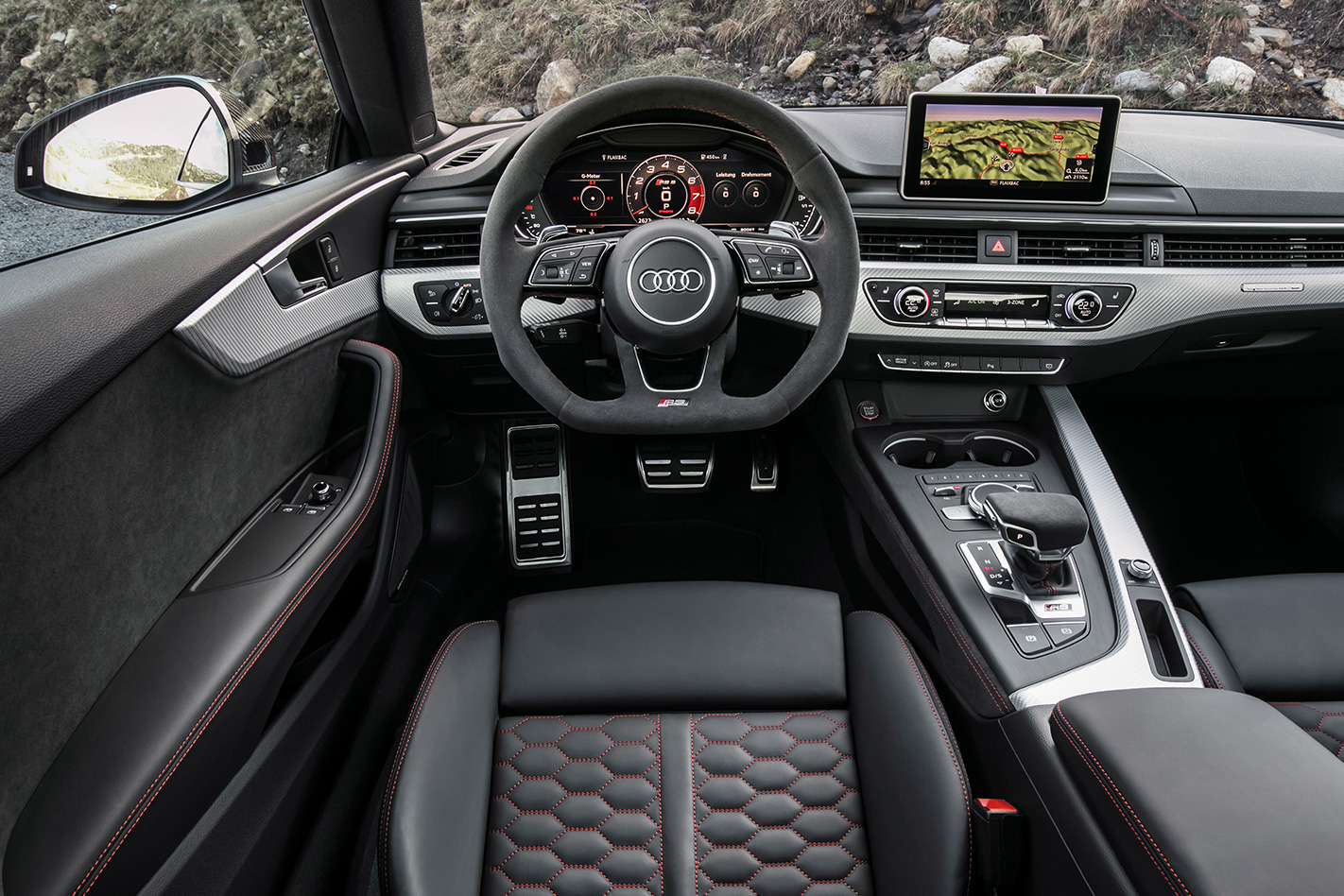
It is lighter by 60kg in its cooking format (thanks mostly to the 31kg-lighter V6), the mechanical rear ‘sport’ differential can complement the quattro all-wheel drive system and wheel selective torque control. The chassis is new, too, with a five-link arrangement at the front and back, paired with adaptive dampers. There’s also a transmission change to a ZF eight-speed torque converter auto.
That means the car shares its V6 with the second-generation Panamera 4S, but not an entire driveline. Outputs are slightly different, too, Audi Sport having eked out 7kW more so it can claim to match the outgoing V8’s 331kW. Peak torque, predictably, is dramatically superior, the V6 summoning up 600Nm from 1900rpm.
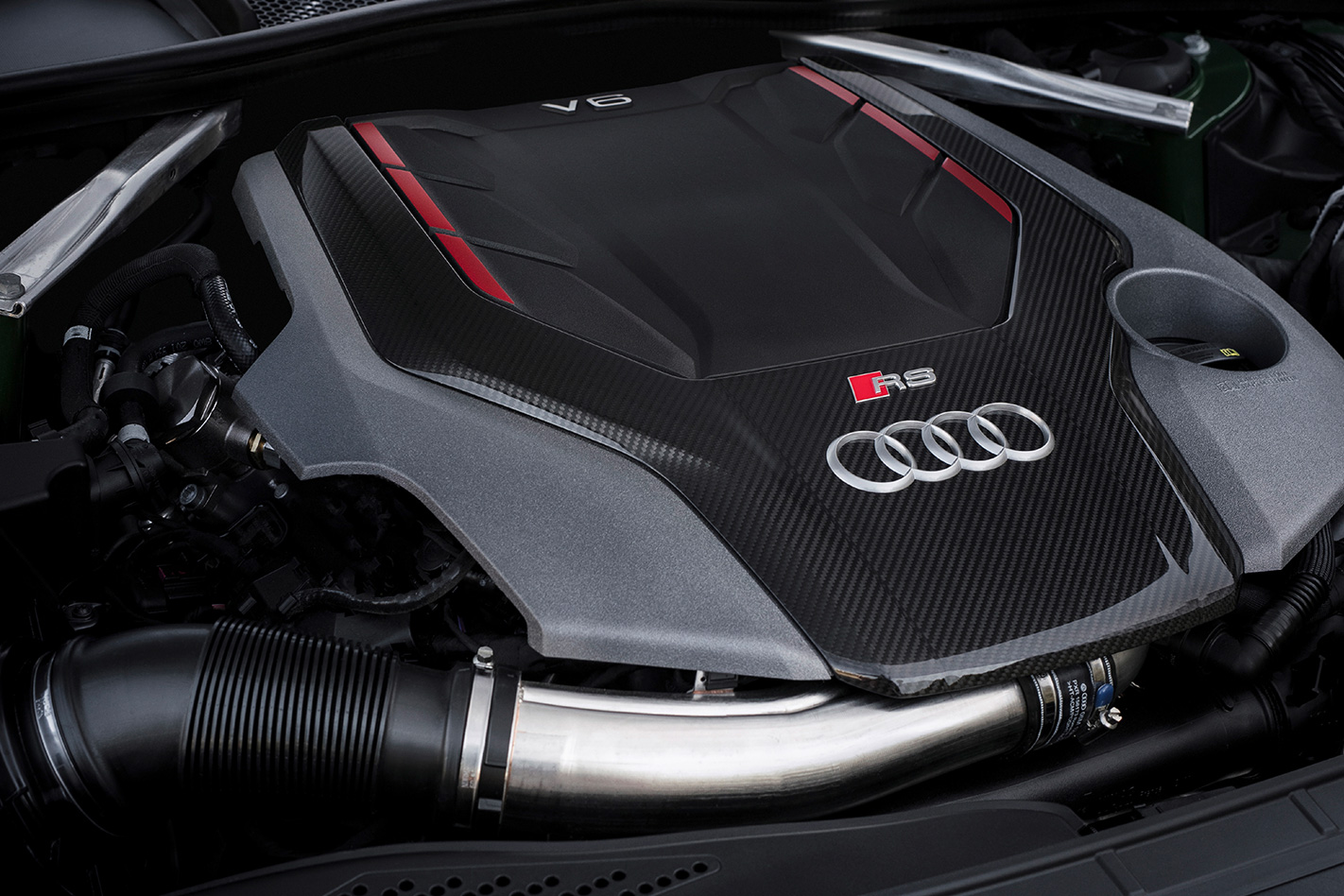
The inside also conforms to type, which is to say immaculate and brilliantly made and utterly endearing to touch and look at. Start-up is slightly less auspicious. Audi Sport has persevered with the soundtrack – boldly equating it to the turbocharged V6 that powered the B5-generation RS4 – but its bass-edged waffle doesn’t quite cut it.
That’s to be expected. And so is the performance. Where its predecessor dispensed progress in escalating lunges to the redline, the V6 unfurls itself through the medium of the mid range. Its surge is prodigious, unthreatening and prolonged – any concern about the Tiptronic’s lacklustre showing in the Audi S5 is swept away by its sure handling of the many rhythmic upshifts required.
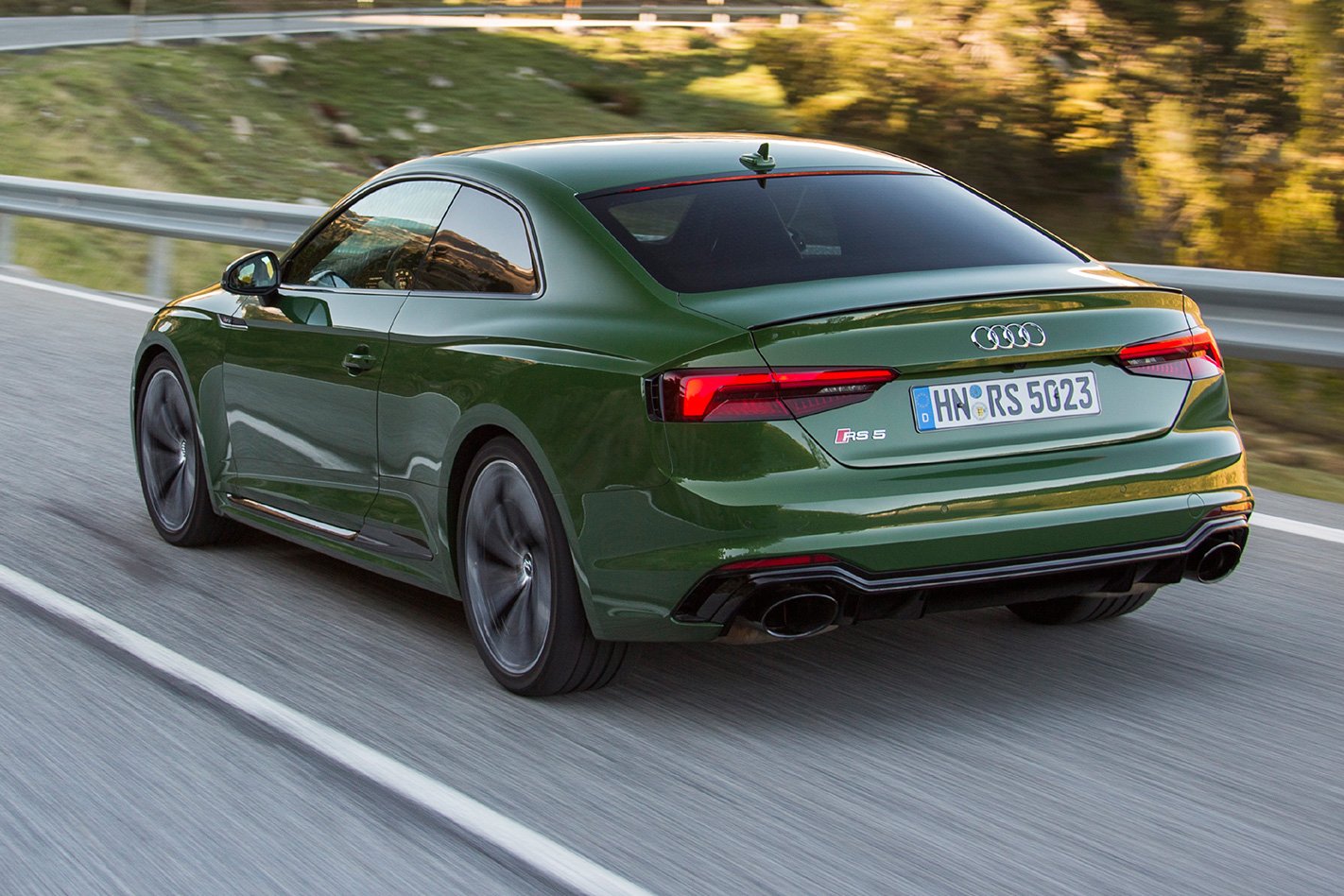
Tie in a Dynamic steering system which actually comes good at outside-lane motorway speeds and suddenly you’ve got a two-door RS car persuasively capable of crossing a continent. That the new V6 plays as compelling a part in that narrative as the V8 did in the old car’s motley charm is a massive plus in its favour.
Where the minuses occur, they do so with a pervading sense of inevitability. It hardly needs saying that the new RS5 is quicker than the old, but there isn’t the same accompanying theatrical fizz to its high-rev function, nor the same potmarked mechanical shunt to its paddle-operated gear changes.
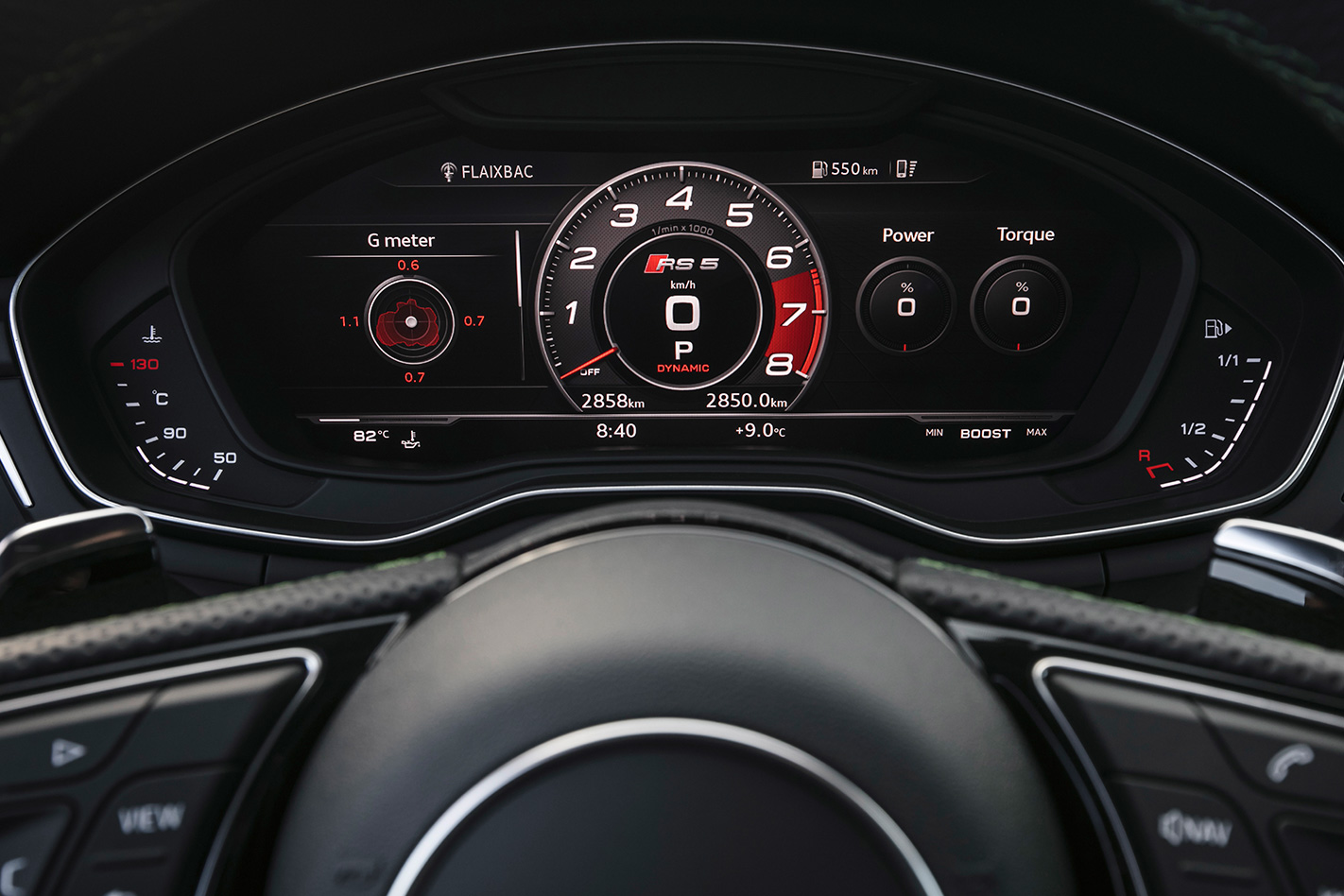
With less weight over the front axle and the rear diff attached, the car is plainly more agile than it’s ever been and can at least be goaded into delivering more drive to the outside back wheel. But the adjustability is fleeting, and very promptly tidied up by the drivetrain even with the stability control switched off.
Immodest amounts of speed or throttle will simply result in Audi’s age-old understeer remedy. Perhaps that’s all forgiveable against the backdrop of its maker’s penchant for massive directional stability – it’s rather less easy to absolve the ‘dynamic’ end of the dampers settings or the decidedly clumsy pedal feel of the cost-option ceramic brakes.
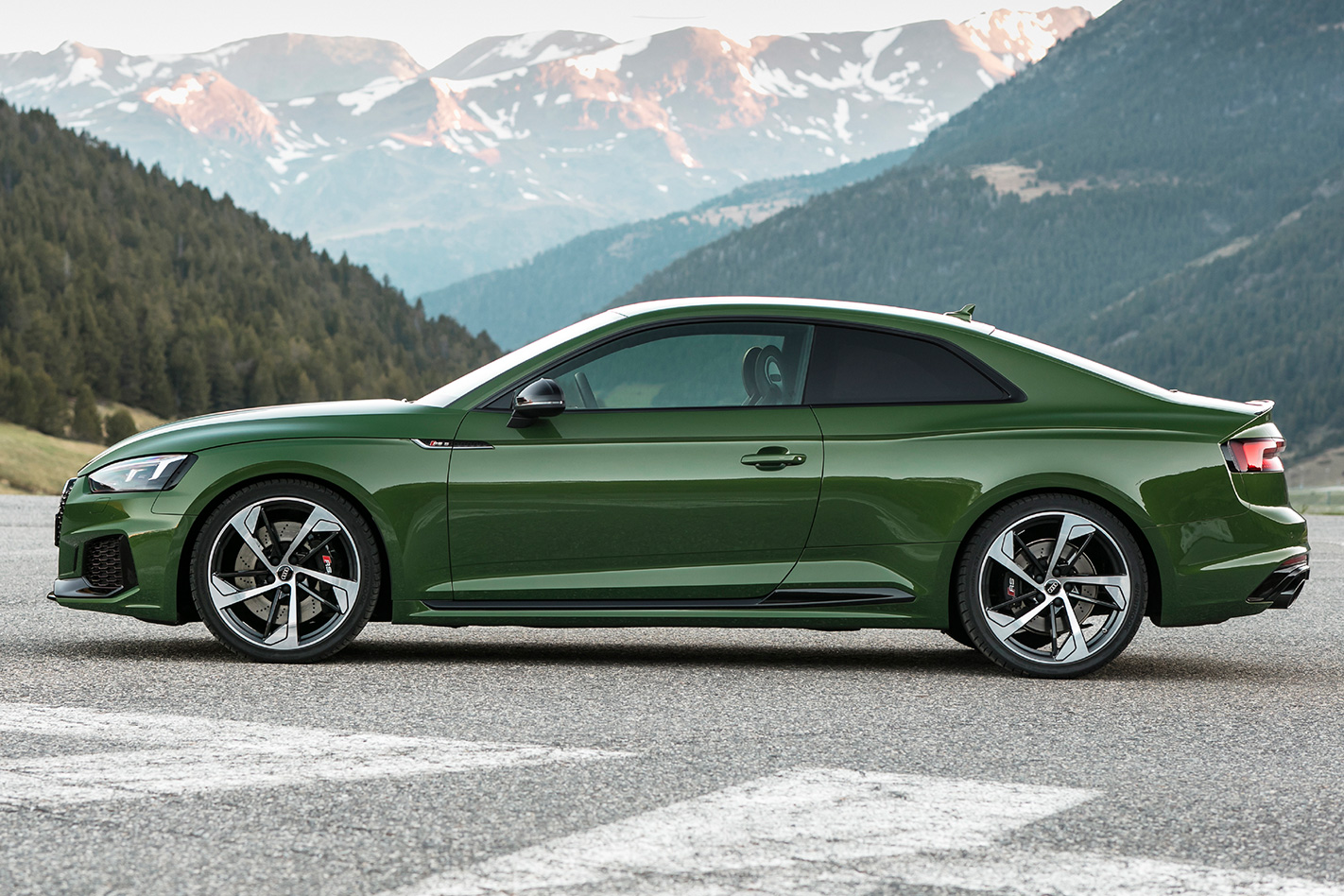
Instead, any deeper appreciation of the prospect rests on a preference for the model’s tactful repositioning. Dig the monster GT vibe, and the car’s established gifts for interior splendour, technical prowess and sharp-edged appearance start to make considerable sense – as does the generosity and seamlessness of the bi-turbo lump.
Seen from this alternative vantage point, which has almost nothing to do with the hard-charging, handling flair that exemplifies its rivals, and the RS5 appears simultaneously limited – and quite possibly more appealing than ever before.
4 stars out of 5
Like: New character; high-end cabin; performance Dislike: Loss of a great atmo engine; more of a GT cruiser
Specs: Engine: 2894cc V6, DOHV, 24v, twin-turbo Power: 331kW @ 5700rpm Torque: 600Nm @ 1900-500rpm Weight: 1665kg 0-100km/h: 3.9sec (claimed) Price: $155,000 (est)

